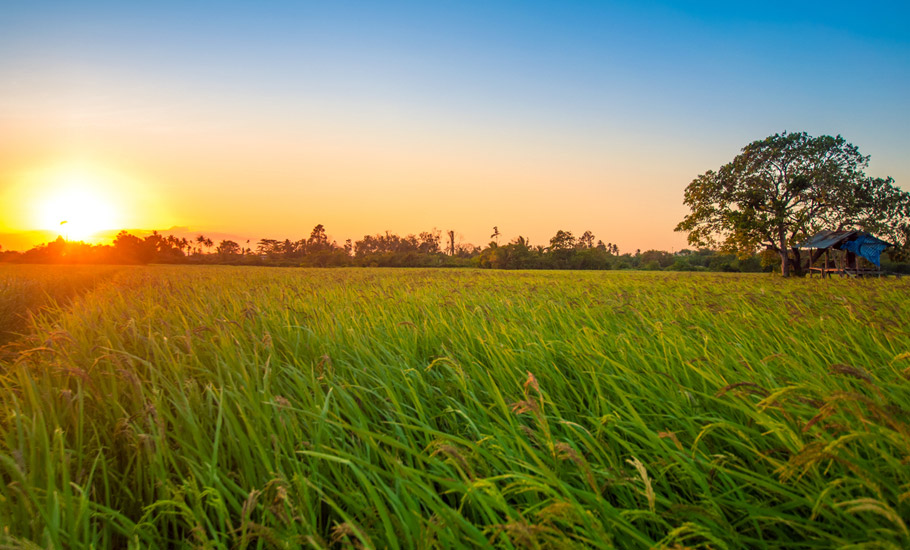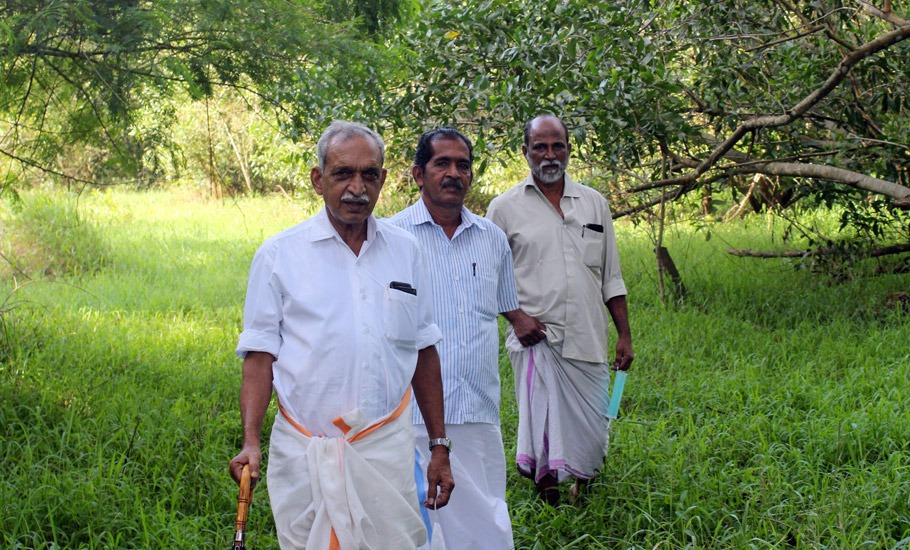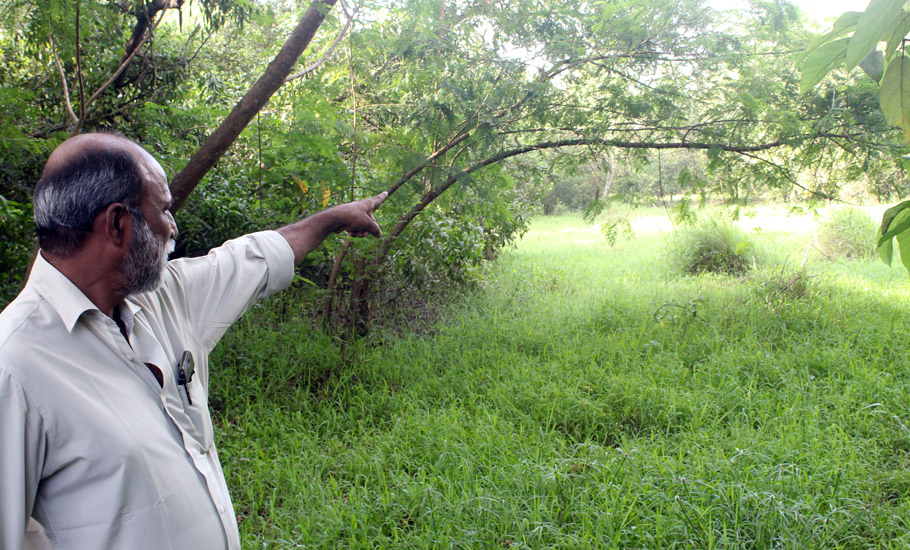
- Home
- News
- Analysis
- States
- Perspective
- Videos
- Education
- Entertainment
- Elections
- World Cup 2023
- Features
- Health
- Budget 2024-25
- Business
- Series
- NEET TANGLE
- Economy Series
- Earth Day
- Kashmir’s Frozen Turbulence
- India@75
- The legend of Ramjanmabhoomi
- Liberalisation@30
- How to tame a dragon
- Celebrating biodiversity
- Farm Matters
- 50 days of solitude
- Bringing Migrants Home
- Budget 2020
- Jharkhand Votes
- The Federal Investigates
- The Federal Impact
- Vanishing Sand
- Gandhi @ 150
- Andhra Today
- Field report
- Operation Gulmarg
- Pandemic @1 Mn in India
- The Federal Year-End
- The Zero Year
- Premium
- Science
- Brand studio
- Home
- NewsNews
- Analysis
- StatesStates
- PerspectivePerspective
- VideosVideos
- Entertainment
- ElectionsElections
- Sports
- Loading...
Sports - Features
- Budget 2024-25
- BusinessBusiness
- Premium
- Loading...
Premium

When 2 Kerala farmers took on Adani Group and won a legal battle

On April 15, 2009, farmers Rajan and PP Baby were surprised to see hundreds of trucks unloading sand in a field adjacent to their land in Kizhakkambalam in Ernakulam district of Kerala, an eastern suburb of Kochi. But the two, who also happened to be CPI(M) activists, were busy with the Lok Sabha elections that were being held in the state the next day and unable to look into the...
On April 15, 2009, farmers Rajan and PP Baby were surprised to see hundreds of trucks unloading sand in a field adjacent to their land in Kizhakkambalam in Ernakulam district of Kerala, an eastern suburb of Kochi. But the two, who also happened to be CPI(M) activists, were busy with the Lok Sabha elections that were being held in the state the next day and unable to look into the matter.
“We did not have time to look into the matter until the election got over. After that, we made a complaint to the authorities, including the panchayat, the land revenue commissioner and the then chief minister VS Achuthanandan,” they recall.
The farmers had no idea who was behind this even as the field that used to yield paddy was soon filled up with sand.
As they pressed the authorities to probe more, it was revealed that the land — around 27 acres — was owned by the Mumbai-based Adani Infrastructure and Developers Private Ltd, Adani Landscape Private Ltd (Ahmedabad) and Aaloka Real Estate Private Ltd.
As per records, the land was purchased for constructing a multi-storied complex having an area of 423,919.16 sqm. The companies had already obtained the approval for constructing the building, and thus, had started filling up the land.
For Rajan and Baby, this came as a shock. For years, they had seen the land being used for cultivation of paddy. And it was not that it was barren. But now the land was being given up for commercialisation.
“There were collective efforts from various corners to establish that the land was not used for paddy cultivation, and was thus eligible to be filled and converted and be used for commercial purposes,” Baby tells The Federal.
“Even the RDO (revenue divisional officer) had given an order in favour of the Adani Group,” says Baby.
The RDO’s report said that the land had not been used for paddy cultivation and so filling it up was permitted.
Baby and Rajan then approached the Land Revenue Commissioner and presented their case. The land revenue commissioner, after preliminary examination, imposed a stay on the RDO’s sanction for filling up the land and converting it from agricultural to commercial.

Authorities’ intervention
The then Agriculture Officer at Kizhakkambalam Panchayat, after site inspection, had reported that the land was suitable for paddy cultivation.
Further, it was reported that a Pada Sekhara Samithi (a collective body of paddy farming) had existed in the area till June 2006 and a production incentive was given to the farmers till 2003.
On further examination and site visit, the land revenue commission found that the RDO’s order was against the provisions of the Kerala Conservation of Paddy land and Wetland Act 2008.
The Act prohibits conversion or reclamation of paddy land. Section 3 of the Act indicates that the owner or the occupier or any person in custody of any paddy land shall not undertake any activity for conversion or reclamation of the paddy land except in accordance with the provisions of the Act.
The Act was passed by the then LDF government with an intention to overrule the Kerala Land Utilisation Order of 1967 which had sufficient loopholes to convert wetlands and paddy fields for commercial purpose.
In the October 19, 2009 order, the office of the land revenue commission stated the following:
“As per revenue records, the tenure of land is (categorised as) ‘Nilam’ (wetland). Large scale conversion cannot be given. The people of the locality have complained about the scarcity of drinking water in that area when the Additional Commissioner and the Assistant Commissioner had inspected the site. The private right of an individual cannot ignore the public right for drinking water which is part of the right to life guaranteed under Article 21 of the Constitution of India.”
The report further says that Kerala has been a state that is largely dependent on other states for foodgrains. It noted that it is the settled policy of the government to encourage farming by providing several incentive programmes like subsidy, support price, etc. And thus “such a large scale conversion of paddy land would be a severe blow to the state’s efforts at food security”.

“I do remember that dispute,” says Dr Jayakumar, who was the then Agriculture Production Commissioner, the authority to adjudicate the dispute.
“Those farmers came on their own, argued the case themselves. They did not come with a lawyer. They presented the case with sufficient records to prove that the land was a paddy field which had been used for cultivation,” he says Jayakumar.
“The other party came with eminent lawyers, but it didn’t take me much time to understand the facts. I issued an order in favour of the farmers,” he recollects.
The legal battle
The case went to courts and dragged on for five years.
In 2014, a single bench of the Kerala High Court upheld the order issued by the land revenue commission, noting that the land was used for paddy cultivation, and thus, comes under the purview of Kerala Conservation of Paddy Land and Wetland Act 2008.
The Adani group and Aaloka Real Estate group then approached the division bench of the Kerala High Court which upheld the judgment pronounced by the single bench and dismissed the petition.
The high court dismissed the petition filed by Adani group and directed them to approach the LLMC (Local Level Monitoring Committee) of the panchayat, the body authorised to examine the conversion and filling of paddy land according to the 2008 Act.
The companies have not yet made any attempt to approach the LLMC of the panchayat to get the land released from their data bank which is legally impossible as long as the Kerala Conservation of Paddy land and Wetland Act exists.
“We are watching, we are ready for another round of legal battle if required,” says Antony, the current president of the Karshaka Sangam at Kizhakkambalam Panchayat.
A panchayat run by corporate CSR
The Kizhakkambalam Panchayat is unique for another reason. It is the only panchayat in Kerala in which a corporate company’s CSR runs the local self-government. Kitex group of companies that is into garment manufacturing and aluminium products, has formed an organisation named Twenty-Twenty and contested the local body election in 2015. They won all except two wards and made history by establishing a local self-government.
Kitex group has been using the CSR component for welfare activities and providing vegetables and grocery at subsidised rates. Both the Congress and the CPM have failed to ‘tackle’ this new political venture.
Farmers vs corporates
At a time when farmers are up in arms against the government for introducing bills that allow corporates to have a field play and may leave farmers in the lurch, the story of these two farmers who took on a corporate giant and won the case comes as an inspiration for many farmers.
Despite being a graduate, Baby, who has been an active member of the CPI(M) since the age of 18, did not want to give up farming. He has worked as the secretary of the Karshaka Sangam, a farmers’ organisation affiliated to the CPI(M).
Rajan was the secretary of the agricultural labourers’ union affiliated to the Left. Both of them recount how they were persuaded by many to compromise and withdraw the case.
The two farmers who started the legal battle alone were later assisted by lawyers in the high court and succeeded in their battle to preserve and protect 27 acres of paddy land.
“We knew that we were right and justice would finally be on our side,” says Baby.

